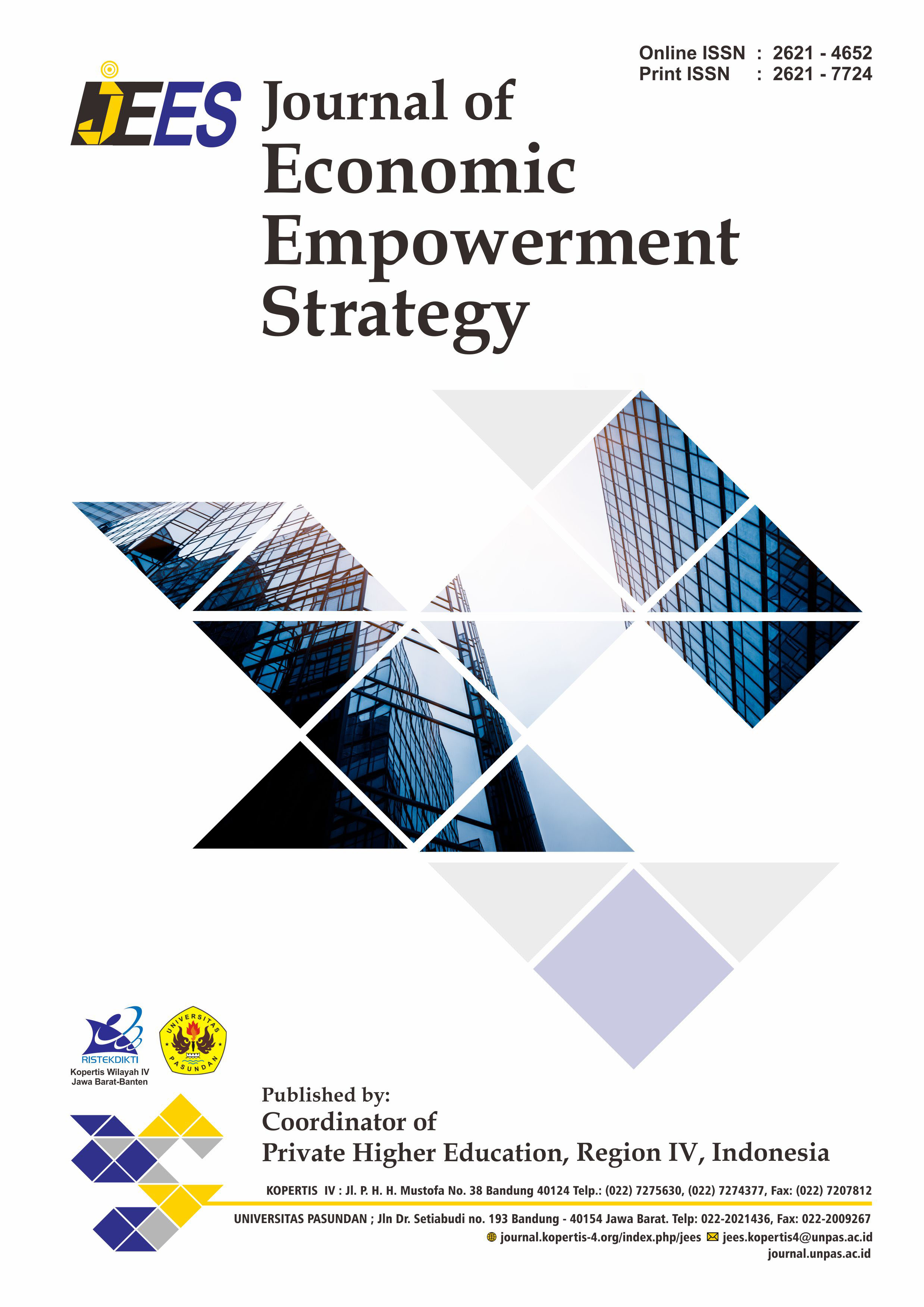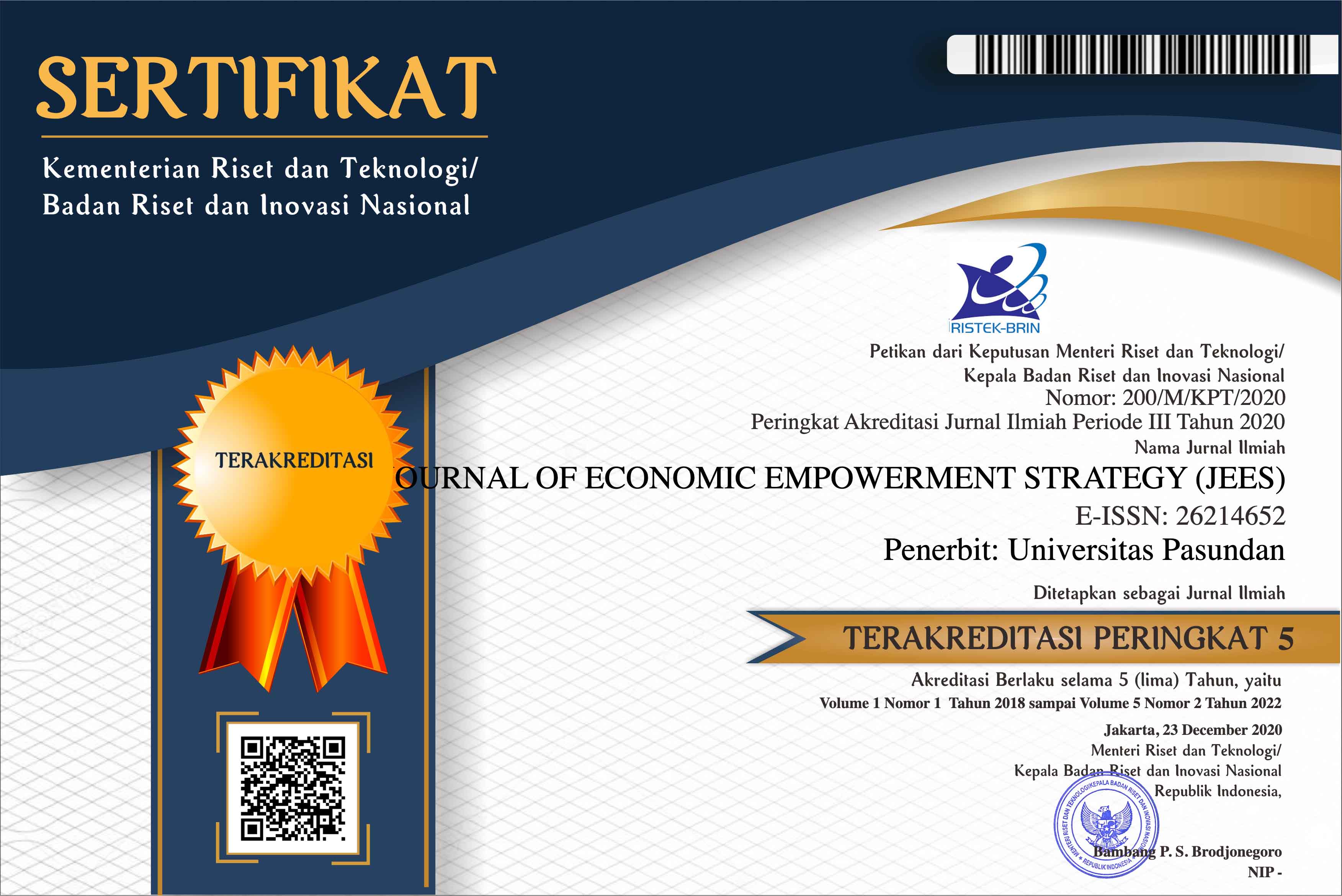COMMUNITY EMPOWERMENT THROUGH THE HUMAN INITIATIVE JAVA MULTI-INCOME FAMILY PROGRAM WEST IN VILLAGE CIMENYAN REGENCY BANDUNG
DOI:
https://doi.org/10.23969/jees.v8i1.12141Keywords:
Selected: Community empowerment, Multi-Income Family Program, Human Initiative, social worker implications.Abstract
This study aims to describe community empowerment through the Multi-Income Family Program by the West Java Human Initiative in Cimenyan Village, Bandung Regency. The research method involves a qualitative approach with observation, interviews, and studies documentation. The results of the study indicate that the program has succeeded in improving the quality of life of the community through relevant skills training and providing access to capital for beneficiary families. The skills training covers various fields that are tailored to local potential and the needs of the local community, so that it can encourage economic independence. The access to capital provided also helps beneficiaries to develop their micro-businesses. However, this study also revealed obstacles in the implementation of the program, such as limited human and financial resources. To overcome these obstacles, the Human Initiative collaborates with various parties, including local governments, private companies, and local communities. This collaboration not only aims to increase the availability of resources but also to expand the scope of the program so that its impact can be felt by more people. This study aims to understand the implementation of the Multi-Income Family Program in Cimenyan Village, Bandung Regency by the Human Initiative, West Java. The research method uses approach qualitative with observation, interview, And studies documentation. The results of the study show that this program improves the quality of life of the community through skills training and access to capital. However, there must be collaboration with the aim of get support broader resources in expanding program coverage. Thus, this study provides an important contribution in understanding the implementation of the Multi-Income Family Program and describes strategic steps to overcome challenges in implementing community empowerment.
Downloads
References
Keluarga Harapan. Journal of Nonformal Education and Community Empowerment, 1(2), 161–169. https://doi.org/10.15294/pls.v1i2.16271
Rohmi, M. L. (2023). Strategi Pengelolaan Usaha Kelompok Usaha Bersama (KUBE). Jurnal Nusantara Berbakti, 1(4). https://ukitoraja.id/index.php/jnb/article/view/188%0Ahttps://ukitoraja.id/index.php/jnb/article/download/188/182
Sari, P. (2017). KELOMPOK USAHA BERSAMA (KUBE) DALAM RANGKA PEMBERDAYAAN MASYARAKAT PRASEJAHTERA. Moderat: Jurnal Ilmiah Ilmu Pemerintahan, 3(2). https://doi.org/http://dx.doi.org/10.25147/moderat.v3i2.688
STKS circa. (2017). Social Worker.
Sugiyono. (2023). Metode Penelitian Kualitatif.
Suharto, E. (2006). Membangun Masyarakat Membangun Rakyat. Kajian Strategis Pembangunan Sosial dan Pekerja Sosial. Rafika Aditama.
Suharto, E. (2020). Kebijakan Sosial sebagai Kebijakan Publik.
Supiadi, E. (2024). Berdaya Bersama untuk Masa Depan : Analisis Kelembagaan Kelompok Usaha Bersama ( Kube ) Fakir Miskin Kabupaten Sumedang. Jurnal Ilmiah Pekerja Sosial, 23(1). https://doi.org/https://doi.org/10.31595/peksos.v23i1.1178
Yasin, H. (2015). Upaya Strategis Pemberdayaan Ekonomi Masyarakat Melalui Kelompok Usaha Bersama (Kube). Jurnal Ilmiah Ilmu Administrasi Publik, 5(1), 38. https://doi.org/10.26858/jiap.v5i1.1064














